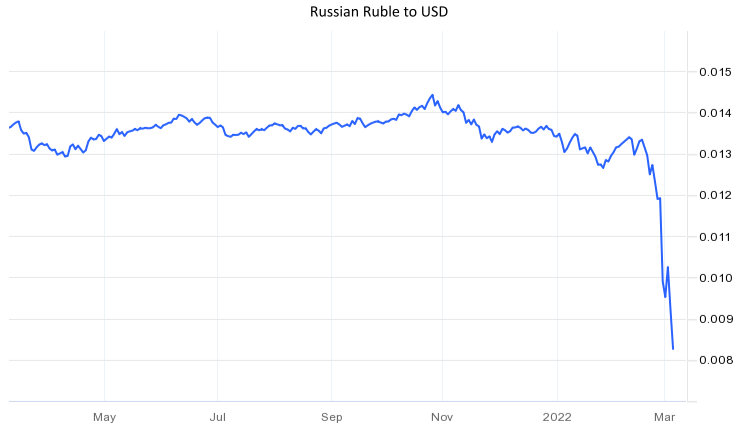Russian Sanctions to Disrupt Sri Lankan Tea Industry

Last month when Russia invaded Ukraine, the trade dynamics started changing very quickly. Countries like the U.S., the U.K. along with the E.U. started imposing heavy restrictions on Russia to close off its economy and block it from the global financial system. Sri Lanka’s tea exports are highly vulnerable to these restrictions as it was well set to participate in the upcoming tea auctions and campaigns. According to the Sri Lanka Tea Board, the country exported 286 thousand mt of tea in 2021 out of which 29 thousand mt was brought by Russia. Russia is among the fastest-growing and third-largest buyers of Sri Lankan tea after Iraq and Turkey. It is expected that the drastic fall in Ruble last week and growing sanctions are likely to impact tea exports and reduce profitability.
After the Russian Ruble collapsed this week, the Sri Lankan tea sector is braced for fallout from Russia’s immense tea market. The steep fall in the currency has made imports expensive for Russian traders. According to Trading Economics exchange rate data, The Russian Ruble weakened to RUB 118 per USD on 4th March 2021, a record low of the past 10 years. The traders across Russia are concerned about affordability, which may come with the steep depreciation of the Ruble in the coming weeks. In addition, the Western allies have limited Russia’s ability to transact internationally after agreeing to remove key Russian banks from the SWIFT interbank system and freezing the assets of the central bank.

Source: Trading Economics.
According to Daily FT, the world's three biggest container lines have temporarily suspended cargo shipments to and from Russia in response to Western sanctions on Moscow which is a further blow to trade with the country. Currently, there is a temporary stoppage on all cargo bookings to and from Russia, covering all access areas including the Baltics, Black Sea, and Far East Russia. Many shipping companies are worried that their business will be both directly and indirectly impacted by sanctions, as bookings within the ocean and inland to and from Russia become temporarily suspended.
It is expected that the flow of cargo to Russia would be affected if the war continues. In addition, Sri Lanka also exports tea to Ukraine in small volumes and the current humanitarian crisis in the country is likely to create a disruption in demands, further impacting Sri Lankan exports. Given the current environment, it is expected that the Sri Lankan tea industry will witness severe economic consequences for tea exports in the near term.

